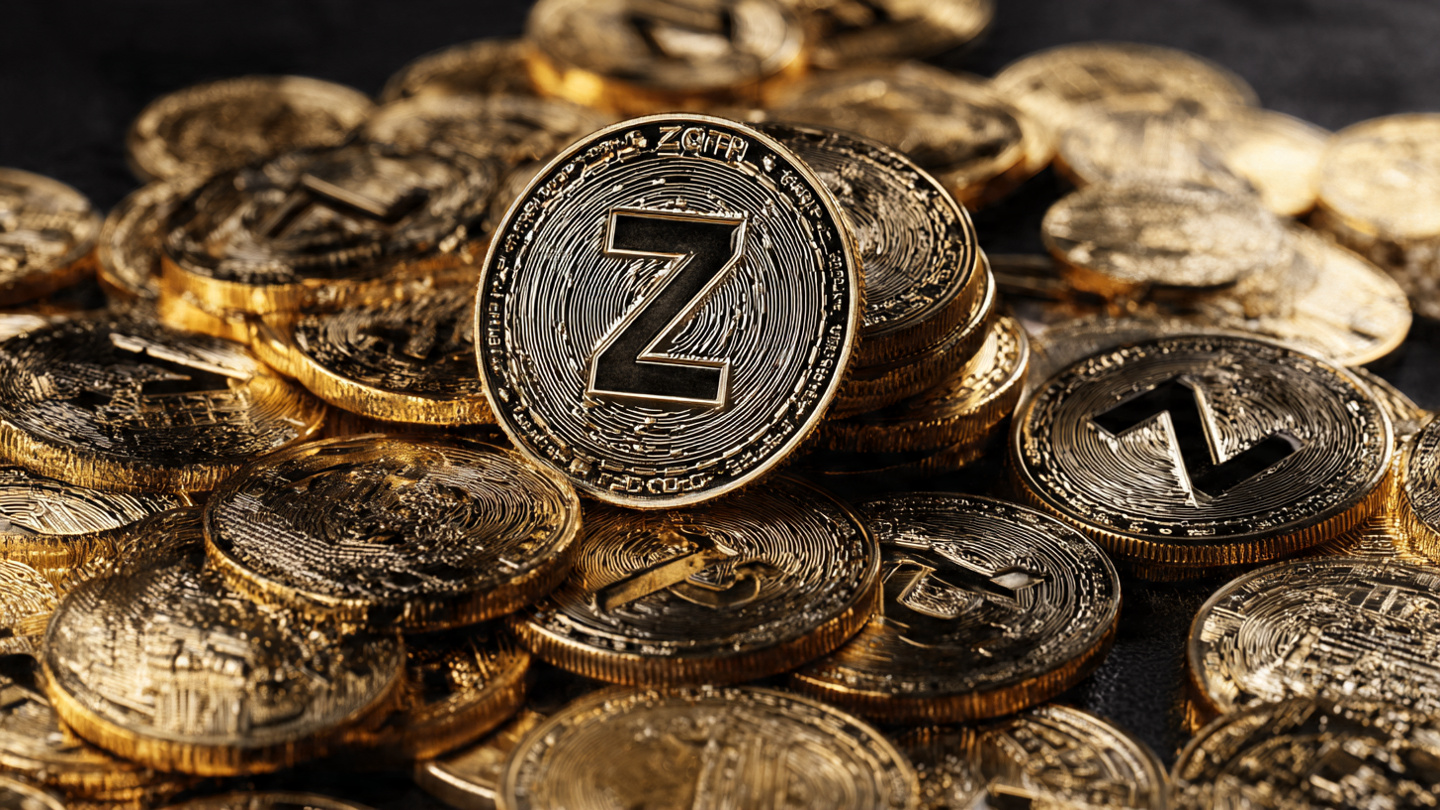When comparing Dogecoin vs Zcash, investors face a choice between a community-driven meme coin and a privacy-focused cryptocurrency. Both digital assets have carved unique niches in the crypto ecosystem, yet they serve dramatically different purposes. Understanding which cryptocurrency aligns with your investment strategy can mean the difference between substantial returns and disappointing losses. This comprehensive guide examines the Dogecoin vs Zcash debate, analysing their technology, use cases, market performance, and future potential to help you make an informed investment decision in today’s volatile cryptocurrency market.
Dogecoin: The People’s Cryptocurrency
What Makes Dogecoin Unique?
Dogecoin (DOGE) started as a lighthearted joke in 2013 but has evolved into one of the most recognisable cryptocurrencies globally. Created by Billy Markus and Jackson Palmer, this digital currency was inspired by the popular “Doge” Shiba Inu meme. Despite its humorous origins, Dogecoin has developed a passionate community and achieved a market capitalisation exceeding billions of dollars.
The cryptocurrency operates on a proof-of-work consensus mechanism similar to Bitcoin but with significantly faster block times. Dogecoin produces a new block approximately every minute, compared to Bitcoin’s ten-minute intervals. This faster processing enables quicker transaction confirmations, making DOGE practical for everyday transactions and microtransactions.
Dogecoin’s Technology and Infrastructure
Dogecoin’s blockchain technology is derived from Litecoin, which itself was forked from Bitcoin’s codebase. The network uses the Scrypt hashing algorithm, which was initially chosen to make mining more accessible to average users with standard computer hardware. However, as the network grew, specialised mining equipment became necessary for profitable operations.
One distinguishing feature of Dogecoin is its unlimited supply. Unlike Bitcoin’s capped 21 million coins, Dogecoin has no maximum supply limit. Approximately 5 billion new DOGE coins are mined annually, creating consistent inflationary pressure. Proponents argue this inflationary model encourages spending rather than hoarding, aligning with Dogecoin’s vision as a transactional currency rather than a store of value.
Community Strength and Social Media Influence
The Dogecoin community represents one of the cryptocurrency’s greatest assets. Known for charitable initiatives and tipping content creators, the DOGE community has funded various causes, including sponsoring NASCAR drivers and funding clean water projects in Kenya. This philanthropic spirit has helped maintain enthusiasm during market downturns.
Social media influence, particularly from high-profile figures like Elon Musk, has dramatically impacted Dogecoin’s price. Musk’s tweets have historically triggered significant price movements, demonstrating both the power and volatility associated with sentiment-driven cryptocurrencies. This celebrity endorsement has introduced millions of new investors to cryptocurrency through Dogecoin’s accessible and friendly brand.
Zcash: Privacy-Focused Cryptocurrency
The Privacy Revolution in Digital Currency
Zcash (ZEC) launched in 2016 with a fundamentally different mission than Dogecoin. Developed by cryptographers and scientists, Zcash prioritises transaction privacy through advanced cryptographic techniques. The cryptocurrency addresses a critical concern in the blockchain space: the transparency of public ledgers that can expose financial information.
While Bitcoin and most cryptocurrencies record all transaction details on a public blockchain, Zcash offers optional privacy features. Users can choose between transparent transactions (similar to Bitcoin) or shielded transactions that hide sender, receiver, and transaction amounts. This flexibility allows users to balance transparency requirements with privacy preferences.
Zero-Knowledge Proof Technology
Zcash’s technological foundation rests on zero-knowledge cryptography, specifically zk-SNARKs (Zero-Knowledge Succinct Non-Interactive Arguments of Knowledge). This sophisticated technology allows one party to prove they possess certain information without revealing the information itself. In practical terms, Zcash can verify transactions are legitimate without exposing transaction details.
This cryptographic innovation represents a significant advancement in blockchain technology. The development team includes world-renowned cryptographers and computer scientists who continue refining the protocol. Zcash’s technology has influenced numerous other privacy-focused projects and blockchain applications beyond cryptocurrency.
Zcash Supply and Economic Model

Zcash has a maximum supply cap of 21 million coins, identical to Bitcoin. This scarcity model positions ZEC as a potential store of value, contrasting sharply with Dogecoin’s inflationary supply. The cryptocurrency experiences halving events approximately every four years, reducing the block reward and decreasing new coin issuance over time.
The Zcash network initially allocated 20% of mining rewards to the founding team, investors, and the Electric Coin Company (the organisation behind Zcash’s development). This “founder’s reward” was controversial but ended in November 2020. Subsequently, a governance process established that 20% of block rewards would fund ongoing development through community-controlled grants.
Dogecoin vs Zcash: Technical Comparison
Transaction Speed and Scalability
When evaluating Dogecoin vs Zcash for transaction efficiency, both cryptocurrencies offer advantages over Bitcoin. Dogecoin’s one-minute block time enables faster confirmations, making it suitable for point-of-sale transactions and microtransactions. The network can process approximately 33 transactions per second, reasonable for a payment-focused cryptocurrency.
Zcash generates blocks every 2.5 minutes, positioning it between Dogecoin and Bitcoin for transaction speed. However, shielded transactions require more computational resources, potentially limiting throughput. The Zcash development team continues working on scaling solutions to improve performance while maintaining privacy guarantees.
Neither cryptocurrency currently implements Layer 2 scaling solutions like Bitcoin’s Lightning Network, though both communities have discussed potential upgrades. Transaction fees on both networks remain significantly lower than Ethereum, making them cost-effective for smaller transactions.
Security and Network Strength
Network security depends heavily on hash rate and miner distribution. Dogecoin merged mining with Litecoin in 2014, significantly enhancing its security. Miners can simultaneously mine both Litecoin and Dogecoin, leveraging Litecoin’s substantial hash rate to secure the Dogecoin network. This arrangement provides Dogecoin with security disproportionate to its individual mining ecosystem.
Zcash maintains an independent mining network using the Equihash algorithm (later updated to a modified version). While smaller than Bitcoin’s hash rate, Zcash benefits from dedicated mining operations and a committed community. The privacy features attract users specifically seeking shielded transactions, creating organic demand beyond speculative trading.
Both networks have demonstrated resilience against attacks, though Dogecoin’s larger community and merged mining arrangement provide additional security layers. Zcash’s smaller network size theoretically makes it more vulnerable to 51% attacks, though no successful attacks have occurred.
Investment Performance: Dogecoin vs Zcash
Historical Price Performance
The Dogecoin vs Zcash price comparison reveals dramatically different trajectories. Dogecoin remained relatively obscure until 2021, when a perfect storm of social media attention, retail investor enthusiasm, and celebrity endorsements propelled it to all-time highs. DOGE reached approximately $0.73 in May 2021, delivering astronomical returns for early adopters.
Zcash experienced its highest valuation shortly after launch, peaking at around $3,200 in early 2017 during the initial coin offering boom. Since then, ZEC has experienced significant volatility but generally trended lower relative to its all-time high. Privacy coins faced regulatory scrutiny and exchange delistings, creating headwinds for price appreciation.
Analysing risk-adjusted returns, Dogecoin has delivered superior performance for investors entering during specific periods, particularly 2020-2021. However, this performance was largely sentiment-driven rather than fundamental, creating extreme volatility. Zcash has shown more stable price action relative to its volatility, though absolute returns lagged behind DOGE’s meteoric 2021 rally.
Market Capitalisation and Liquidity
Market capitalisation provides insight into cryptocurrency size and stability. At various points, Dogecoin has ranked among the top ten cryptocurrencies by market cap, reaching over $90 billion at its peak. This substantial capitalisation reflects widespread adoption and speculative interest, though it declined significantly from peak levels.
Zcash typically maintains a market capitalisation ranking between 50-100, substantially smaller than Dogecoin. This smaller size offers both advantages and disadvantages. Lower market caps can provide greater upside potential but also increase volatility and liquidity concerns during major market movements.
Liquidity, the ability to buy or sell without significant price impact, favours Dogecoin. Major exchanges worldwide list DOGE with substantial trading volumes across numerous trading pairs. Zcash, while available on major platforms, has faced delisting from some exchanges due to regulatory concerns about privacy coins, potentially limiting accessibility for certain investors.
Volatility and Risk Assessment
Cryptocurrency volatility presents both opportunity and risk. Dogecoin exhibits extreme volatility, with price swings of 20-50% occurring within single days during peak speculation periods. This volatility stems from sentiment-driven trading, limited fundamental use cases, and concentrated holder distribution, where large wallets can significantly impact prices.
Zcash demonstrates substantial volatility but generally less extreme than Dogecoin’s recent price action. The cryptocurrency’s volatility often correlates with broader cryptocurrency market movements rather than specific individual catalysts. Privacy coin regulatory developments create unique volatility factors not present in Dogecoin’s price dynamics.
Risk profiles differ significantly between these cryptocurrencies. Dogecoin faces risks from its unlimited supply, dependence on community sentiment, and limited technical development. Zcash contends with regulatory risks specific to privacy coins, smaller network effects, and competition from other privacy-focused cryptocurrencies like Monero.
Use Cases and Real-World Applications
Dogecoin’s Practical Applications

Despite its meme origins, Dogecoin has developed legitimate use cases. Numerous merchants accept DOGE as payment, ranging from online retailers to physical stores. The cryptocurrency’s low transaction fees and fast confirmation times make it practical for small purchases and international remittances.
The tipping culture within Dogecoin’s community represents a unique use case. Content creators, social media users, and community members tip each other DOGE as appreciation for valuable content or assistance. This microtransaction functionality showcases cryptocurrency’s potential for enabling new forms of value transfer impossible with traditional payment systems.
Major companies have begun accepting Dogecoin, including some Tesla merchandise, various online retailers, and even some professional sports teams for merchandise and tickets. These integrations validate Dogecoin’s legitimacy beyond speculation, though adoption remains far below traditional payment methods.
Zcash’s Privacy Applications
Zcash serves users requiring financial privacy, a fundamental right increasingly threatened in our digital age. Legitimate privacy use cases include protecting business financial information, maintaining personal financial privacy, and conducting transactions in regions with oppressive financial surveillance.
While privacy features attract concerns about illicit activity, research indicates the vast majority of Zcash transactions are legitimate. Privacy is not synonymous with criminality; individuals and businesses have valid reasons for maintaining financial confidentiality. Zcash provides this capability while maintaining the option for transparent transactions when appropriate.
The cryptocurrency has seen adoption from privacy-conscious individuals, businesses requiring confidential transactions, and users in regions with capital controls. Some cryptocurrency users employ Zcash as an intermediate step for privacy, converting from other cryptocurrencies to ZEC and back to break transaction trails.
Regulatory Landscape and Compliance
Dogecoin’s Regulatory Position
Dogecoin generally faces minimal regulatory scrutiny compared to privacy coins. Most regulators classify DOGE as a commodity or virtual asset without specific restrictions. Major cryptocurrency exchanges list Dogecoin without hesitation, and the cryptocurrency trades freely in most jurisdictions.
The transparent blockchain aligns with regulatory preferences for financial surveillance and anti-money laundering compliance. Law enforcement can trace Dogecoin transactions, making it less attractive for illicit activities but more acceptable to regulatory authorities. This regulatory clarity provides stability for long-term holders.
However, cryptocurrency regulation continues evolving globally. Future regulations could impact all cryptocurrencies, including Dogecoin. Classification as a security, taxation changes, or restrictions on cryptocurrency trading could affect DOGE’s accessibility and value proposition.
Zcash’s Regulatory Challenges
Privacy coins face significantly greater regulatory scrutiny. Governments and financial regulators express concerns that privacy features enable money laundering, tax evasion, and other financial crimes. Consequently, some jurisdictions have restricted or banned cryptocurrency trading.
Several major exchanges, particularly in regions with strict regulatory oversight like South Korea and Japan, have delisted Zcash and other privacy coins. These delistings reduce liquidity and accessibility, creating headwinds for price appreciation and mainstream adoption.
The Zcash community and Electric Coin Company actively engage with regulators, emphasising that privacy is not inherently criminal and that optional transparency features address compliance concerns. Whether these efforts result in more favourable regulatory treatment remains uncertain, representing a significant risk factor for ZEC investors.
Development Activity and Future Roadmap
Dogecoin’s Development Status
Dogecoin’s development has historically been sporadic, with periods of minimal activity. The original creators stepped away from active development, leaving the project to community contributors. This limited development resulted in the cryptocurrency retaining relatively basic functionality without significant protocol upgrades.
Recently, development activity increased following renewed interest and funding from community members and Elon Musk’s involvement. The Dogecoin Foundation reformed with advisors including Ethereum co-founder Vitalik Buterin. Proposed improvements include reducing transaction fees, improving efficiency, and exploring bridge connections with other blockchains.
The development roadmap emphasises maintaining Dogecoin’s core identity while improving technical capabilities. Unlike cryptocurrencies pursuing complex smart contract functionality, Dogecoin focuses on being an efficient, accessible payment system. This focused approach may limit functionality but reduces complexity and potential vulnerabilities.
Zcash’s Technical Innovation
Zcash maintains active development with continuous protocol improvements. The development team regularly publishes research, implements upgrades, and explores cutting-edge cryptographic techniques. Recent upgrades have improved performance, reduced shielded transaction costs, and enhanced security.
Future development focuses on several key areas: improving shielded transaction performance to make privacy the default option, implementing cross-chain interoperability, and continuing cryptographic research. The Zcash ecosystem includes multiple independent implementation teams, creating redundancy and reducing centralisation risks.
The cryptocurrency’s technical sophistication attracts developers interested in privacy and cryptography. This intellectual capital represents a significant asset, potentially leading to innovations applicable beyond Zcash itself. However, technical complexity can also slow development and create implementation challenges.
Community and Ecosystem Comparison
The Dogecoin Community Phenomenon
Dogecoin’s community represents its strongest asset. The welcoming, humorous culture contrasts sharply with the often-serious cryptocurrency space, attracting users intimidated by complex technical discussions. This accessibility has built a massive, engaged community across social media platforms.
Community-driven marketing has elevated Dogecoin’s visibility beyond most altcoins. Grassroots campaigns, memes, and viral moments have generated billions of impressions without traditional marketing budgets. This organic growth demonstrates community power in the digital age, though it also creates dependence on sustained enthusiasm.
However, the community lacks significant technical depth compared to cryptocurrencies like Ethereum or Bitcoin. Most community members are users rather than developers, potentially limiting the ecosystem’s ability to build sophisticated applications or protocols on top of Dogecoin.
Zcash’s Technical Community
The Zcash community skews toward technically sophisticated users valuing privacy and cryptographic innovation. Community discussions often involve complex technical topics, research papers, and protocol improvement proposals. This creates a knowledgeable but smaller community compared to Dogecoin’s mass appeal.
Developer activity within the Zcash ecosystem includes multiple wallet implementations, exchanges specifically supporting shielded transactions, and privacy-focused applications. The Electric Coin Company and Zcash Foundation provide institutional support, funding for development through block reward allocations.
The privacy-focused community attracts individuals philosophically committed to financial privacy as a fundamental right. This ideological commitment provides resilience during market downturns but may limit mainstream adoption given widespread ambivalence about privacy among average users.
Environmental Impact and Sustainability
Both Dogecoin vs Zcash use proof-of-work consensus mechanisms requiring computational energy. Environmental concerns surrounding cryptocurrency mining have intensified, making sustainability an important investment consideration.
Dogecoin’s merged mining with Litecoin improves efficiency by allowing miners to secure both networks simultaneously without additional energy consumption. This arrangement reduces Dogecoin’s individual environmental footprint. However, the unlimited supply model means mining continues indefinitely without reduction, maintaining ongoing energy requirements.
Zcash’s smaller network consumes less total energy than major cryptocurrencies, though per-transaction energy use remains substantial. The development community has discussed potential transitions to more energy-efficient consensus mechanisms, though no concrete plans exist currently. Privacy features add computational overhead, slightly increasing energy requirements per transaction.
Neither cryptocurrency has prioritised environmental sustainability to the degree of newer protocols using proof-of-stake or other energy-efficient mechanisms. Investors concerned about environmental impact should carefully consider these factors when evaluating Dogecoin vs Zcash.
Expert Opinions and Market Sentiment
Cryptocurrency analysts hold diverse opinions on Dogecoin vs Zcash. Some experts dismiss Dogecoin as purely speculative, lacking fundamental value beyond community enthusiasm. Others recognise the power of network effects and community, suggesting these factors create real value regardless of technical sophistication.
Zcash receives respect from technical analysts for its cryptographic innovation and legitimate use case. However, concerns about regulatory risks, limited adoption, and competition from other privacy solutions temper enthusiasm. Some analysts view privacy coins as a niche that will never achieve mainstream adoption due to regulatory headwinds.
Market sentiment, measured through social media analysis and trading volume, strongly favours Dogecoin. The cryptocurrency maintains significantly higher mindshare and trading volume relative to Zcash. However, sentiment-driven assets face risks from rapidly shifting enthusiasm, potentially leading to dramatic price corrections.
Investment Strategies and Portfolio Allocation
Dogecoin Investment Approach
Investors considering Dogecoin should acknowledge its speculative nature. The cryptocurrency’s price depends heavily on community enthusiasm, social media trends, and celebrity endorsements rather than traditional fundamental analysis. This makes timing extremely difficult and volatility exceptionally high.
A conservative approach treats Dogecoin as a small, speculative allocation within a diversified cryptocurrency portfolio. Position sizes of 1-5% of cryptocurrency holdings allow participation in potential upside while limiting downside risk. Dollar-cost averaging helps mitigate timing risks given extreme volatility.
Long-term investors should carefully consider Dogecoin’s unlimited supply and lack of technical differentiation. Without continued community enthusiasm or significant use case development, maintaining value long-term may prove challenging. However, network effects and community strength should not be underestimated.
Zcash Investment Considerations
Zcash appeals to investors valuing privacy, technical innovation, and scarce supply economics. The cryptocurrency’s fixed supply cap and halving schedule create scarcity similar to Bitcoin, potentially supporting long-term value appreciation if demand increases.
Regulatory risk represents the primary concern for Zcash investors. Further exchange delistings or regulatory restrictions could significantly impact accessibility and price. Investors must stay informed about regulatory developments and maintain flexibility to exit positions if necessary.
A balanced approach might include Zcash as part of a diversified cryptocurrency portfolio, particularly for investors philosophically aligned with privacy rights and technological innovation. Position sizing should reflect individual risk tolerance and regulatory risk acceptance.
Making Your Decision: Dogecoin vs Zcash
Choosing between Dogecoin vs Zcash requires an honest assessment of investment goals, risk tolerance, and philosophical values. These cryptocurrencies serve different purposes and appeal to distinct investor profiles.
Dogecoin suits investors seeking:
- Exposure to community-driven cryptocurrency phenomena
- Participation in viral, sentiment-driven price movements
- Simple, accessible cryptocurrency for beginners
- Low transaction fees for small payments and tips
- Acceptance of high volatility and speculative risk
Zcash attracts investors prioritising:
- Privacy and financial confidentiality
- Technical innovation and cryptographic advancement
- Scarce supply economics are similar to Bitcoin
- Philosophical alignment with privacy rights
- Willingness to accept regulatory uncertainty
Neither cryptocurrency clearly dominates all investment criteria. Dogecoin offers greater liquidity, community strength, and mainstream recognition. Zcash provides technical sophistication, privacy features, and fixed supply economics. Your personal investment thesis should guide allocation decisions.
Conclusion
The Dogecoin vs Zcash debate ultimately depends on individual investment objectives rather than objective superiority. Dogecoin has demonstrated extraordinary price performance during specific periods, driven by unmatched community enthusiasm and mainstream visibility. However, this sentiment-driven valuation creates significant volatility and uncertain long-term fundamentals.
Zcash offers genuine technological innovation addressing legitimate privacy needs, supported by world-class cryptographers and meaningful development activity. The fixed supply and technical sophistication provide fundamental value arguments beyond speculation. Yet regulatory headwinds and limited mainstream adoption create substantial risks.
Read more: Dogecoin and Avalanche Lead Altcoin Resurgence Crypto Market




